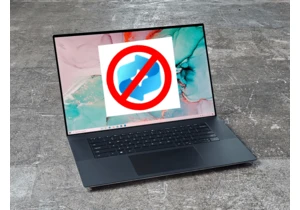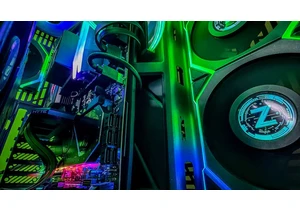The announcement that Lenovo’s second-gen Legion Go S handheld is powered by Valve’s Linux-based SteamOS, the first PC gaming handheld to hold that honor, has started tongues wagging that Microsoft should be very worried about SteamOS establishing a foothold in prebuilt PCs.
PCWorld’s Michael Crider officially kickstarted that thread in his article Microsoft should be terrified of SteamOS, and if you haven’t had a chance to read it yet, you should! It’s a well-researched and interesting yarn.
But as interesting a speculation as it is, I hold a different view. There’s a potent reason why Microsoft needn’t be worried about losing dominance in handhelds — or in desktops or laptops for that matter — and why Windows will remain the top dog OS. It’s got to do with the problem Linux has with kernel-level anti-cheat software and game compatibility.
I’ve got a lot to unpack here about that, so hear me out!
Why Windows on handhelds is here to stay
If you’re unfamiliar with the kernel-level anti-cheat concept, it’s basically a way to stop cheaters in games by running anti-cheat software at a level of Windows that has unrestricted access to a PC’s system memory and hardware.
The software is highly effective at that task, but since it’s designed to work exclusively with Windows, it also has the unfortunate consequence of making a lot of multiplayer games unplayable on Linux-based systems.
In no unclear terms, gamers who want to access the broadest selection of multiplayer games know well that they only really have one choice for an OS — Windows — whether it’s a lousy OS on handhelds or not…
In theory, game developers could provide support on Linux through other means, but many don’t. As you’d expect, that’s been a thorn in the side for gamers for a long time now, but exploded in attention alongside the rise of the Steam Deck. In fact, a large number of gamers have been asking Microsoft to kill kernel-level anti-cheat for ages but have had no success bringing about change.
But there has been a stirring at Microsoft of late in back of house.
Back in 2024, those gamers got a glimmer of hope that Microsoft would in fact kill it off. The excitement came from comments made by the company in a blog post titled “Taking steps that drive resiliency and security for Windows customers,” in which Microsoft hinted it would consider alternative options to kernel-level anti-cheat.
Microsoft was of course responding to the CrowdStrike incident in which kernel-level changes in a CowdStrike update crashed thousands of Windows users’ PCs worldwide.
That post went viral in the gaming community, spawning articles like this one from Notebookcheck that proposed that changes by Microsoft would open the floodgates to more multiplayer game compatibility on Linux. While it all sounded promising at the time, the headlines didn’t quite reflect what Microsoft actually said.
Microsoft didn’t in fact ever mention that it would kill off kernel-level anti-cheat. Rather, what it did say was that it’s likely to develop additional security options outside the kernel-level — in other words a new platform that vendors could use to skirt around it.
Winding things back to a more pragmatic interpretation of what’s likely to happen, then — any talk that kernel-level anti-cheat software is on the way out, is for now, still just speculation.
Even if Microsoft did go ahead with canning kernel-level anti-cheat, by setting up a new security platform for vendors to use through Wine or Proton (as was suggested at the time), there’s no guarantee it will lead to more big-name games playable on Linux. Game developers could still block Linux support through Wine or Proton if they wanted to.
There are many examples of that happening now. Destiny 2, for example, won’t support play on Linux’s Windows compatibility layer Proton unless Windows is installed on a device, and there are many other examples of that happening.
Another reason Microsoft may think twice about taking anti-cheat out of the kernel-level altogether is because of the possible regulatory problems it could encounter.
On that point, it was suggested at the time, when all the talk about anti-cheat started, that Microsoft could face a lot of backlash from regulatory authorities and cyber experts — and it’s a valid point.
What all that means is that kernel-level anti-cheat software is likely here to stay, for now. That’s significant since I look at it as being like a kind of safety net for Windows on handhelds; it secures Windows as the predominant OS for gaming in the minds of players and diminishes the appeal of SteamOS for its compatibility issues.
In no unclear terms, gamers who want to access the broadest selection of multiplayer games know well that they only really have one choice for an OS — Windows — whether it’s a lousy OS on handhelds or not. That’s the first point I want to make.
Big name developers aren’t on board fully either
The second point feeds into that last point. It’s the fact that multiplayer gaming support on Linux has taken a big hit in recent times on the development side, whether because of anti-cheat or not.
You see, while it’s true that Linux has been gaining momentum as a gaming platform recently, now with thousands of playable games, it’s also true that — for the last couple of years at least — big name developers have been dumping Linux support for triple-A multiplayer titles.
The list of developers that have kneecapped Linux support for their games isn’t just populated by small town indie developers — there are blue-chip developers on that list too.
Electronic Arts (EA), for one, broke support for Linux when it introduced its own kernel-based anti-cheat EA Anti-Cheat platform back in 2023 for games like FIFA, Battlefield, and Apex Legends. RockStar Games, Riot Games, Epic Games, and FacePunch Studios, too, have big-name multiplayer games that deny support for Linux. There are workarounds to getting some of these games up and running on Linux, of course, but most will cause headaches to those players that try.

Some big-name multiplayer games like Fortnite don’t officially have Linux support.
Dominic Bayley / IDG
Are the close to 140 million gamers playing games like Fortnite, Apex Legends, and Valorant, about to give up playing those titles with proper anti-cheat and without compatibility issues by switching to Linux? No Sir, most won’t! You just have to read a few Reddit comments to see that.
The status quo will remain unchanged
The obvious caution from manufacturers to adopt Linux for handhelds is an elephant in the room, too.
The fact that we’ve only seen one PC gaming handheld to date adopt SteamOS is evidence of a reluctance on their part to take that plunge. What’s the main reason for the reluctance? Well, it’s just a guess, but in the high-stakes arena of handhelds, it could be too risky from a commercial point of view.
You can glean that from Lenovo’s release, which feels like it could be testing the market for interest in a SteamOS gaming handheld. It would be one thing for the company to have made the Legion Go S exclusively with SteamOS, but the fact that it’s also serving up a Windows 11 version of the Legion Go S, speaks volumes about how much it wants to go out on a limb here with SteamOS.
Another viewpoint is that by providing two options, Lenovo is simply giving gamers more choice in how they want to access their games. Xbox gamers that want an easy way into PC gaming are especially going to be happy they can still access Game Pass via a Windows-powered Legion Go S.
Either way, Lenovo has orchestrated a careful (and wise) easing to market by announcing it will release the Windows handheld before the SteamOS one.

The Lenovo Legion Go S comes in two flavors, one powered by SteamOS and the other by Windows 11.
Dominic Bayley / IDG
Then let’s not forget too, that Valve’s own Steam Deck doesn’t limit users to SteamOS either. Although Valve doesn’t endorse it, you can still load up Windows on it. How many Steam Deck users have jacked their handhelds with Windows 11? Probably more than you think!
All that said — who knows what will happen in a few years’ time. Small changes in gaming hardware can create a lot of momentum. SteamOS on the Legion Go S might just be popular enough to spawn a host of similar Linux-based gaming systems that will eventually lead to an exodus to Linux.
For now, though, Microsoft won’t fear SteamOS. After all, it’s still in the driver’s seat.
https://www.pcworld.com/article/2580126/why-windows-shouldnt-fear-valves-steamos-threat-for-now.html
Connectez-vous pour ajouter un commentaire
Autres messages de ce groupe


Are you the type of person who swears like a sailor or someone who pr


Microsoft’s controversial Windows Recall has now been generally relea

If you’ve ever used your phone to navigate from one appointment to th

Zodiac Labs is a name you might

